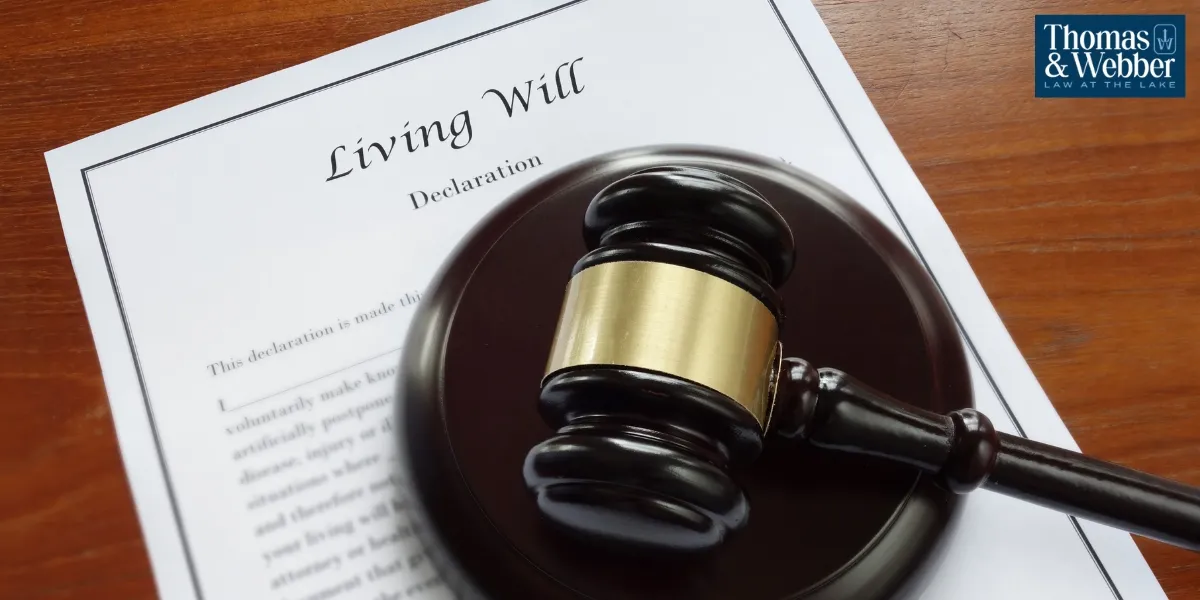Mooresville Living Wills Lawyer

Mooresville Living Wills Attorney
In estate planning, many individuals wish to have a living will. A living will is a legally binding document that precisely and clearly lays out the author’s wishes in the event they are at the end of life. If you’re interested in learning more about whether a living will is right for you, speak to a Mooresville living wills lawyer whom you can trust.
The first-class legal team at Thomas & Webber offers a straightforward and effective approach to estate planning services, including wills, medical power of attorney, and advance directives. We want our clients to understand the documents they sign and the decisions they make for their loved ones in the future. Our eclectic background of legal experience forms a tight-knit team that is dedicated to our clients and our community.
What Is a Living Will?
A living will, by definition, is a legal document outlining the author’s intentions, particularly when they are at the end of their life and unable to communicate their wishes. It provides specific directions as to the author’s wishes in certain medical circumstances. For instance, if the individual becomes incapacitated or loses the ability to communicate, their living will can communicate their wishes for them.
A living will is often applicable when a person becomes in a state of an indefinite coma or falls terminally ill. The main purpose of this document is to convey the wishes of the individual regarding what they want for their end-of-life care. It can also define the scope of life-sustaining treatment the author wishes to have, such as assistance with feeding or breathing, or even CPR.
Essentially, it provides peace of mind to the author, and it takes the uncertainty of their wishes out of the hands of their family members.
A Living Will Versus Medical Power of Attorney
The primary difference that differentiates a living will from a medical power of attorney is that the decision-making power designated in a power of attorney is not in a living will. There is no decision-making or power granted in a living will. The author has already made the decisions regarding their help and treatment. There are no decisions to be made.
Why a Living Will Is Important in an Estate Plan
A study that cataloged results from 150 studies showed that 30% of nearly 800,000 people had written a living will. It’s surprising that more people don’t want to take such a heavy decision out of the hands of their loved ones. The burden of having to make the decisions that a living will takes care of is substantial. Furthermore, the unsettling guilt of whether they made the right choice can last long after the life of their loved one is over.
North Carolina’s advanced healthcare registry initiative makes it simple for residents to submit an advanced healthcare directive to the registry. An advanced healthcare directive and a living will are generally the same document. The only difference could be that an advanced healthcare directive might have a broader plan for medical treatment. A living will, on the other hand, could be considered more of an end-of-life directive. Both, though, could encompass all needs.
If you decide to use the North Carolina living will form, it is recommended that you speak with an attorney first. A Mooresville living wills lawyer is not required to make a living will in North Carolina. However, even the NC Secretary of State recommends discussing questions and obtaining legal advice from an attorney. A living will, like other important parts of estate planning, should be approached and executed with the utmost care.
FAQs
How Much Does a Living Will Cost in Mooresville, NC?
In Mooresville, NC, it’s tough to put a price on a legal service because varying factors can affect the cost of making a living will. For instance, the degree of complexity could affect the cost. A simple document may cost less than a complicated one. Also, different law firms have different rates, and some may charge a flat fee. Furthermore, if a living will is part of estate planning, it wouldn’t be possible to put a price on an individual service.
Does a Living Will Trump a Medical Power of Attorney?
A living will trumps a power of attorney. However, when both are present, a power of attorney gives the power to make decisions to the named individual, who can fill in the gaps when situations occur that are not covered by the living will or when the living will is not yet applicable to the circumstances.
What Is the Cheapest Way to Do a Living Will?
The cheapest way to make a living will is to do it yourself via an online form or online service. The only expense would be the cost of the notary and/or the online service fee, which is usually nominal. However, neither option ensures legal compliance in your state. Remember, online services can be located anywhere in the world. Be aware that you get what you pay for when it comes to cutting corners for legal services.
Which Is Better, a Living Will or a Power of Attorney?
A living will is different from a power of attorney, and neither one is better than the other. It depends on the needs of the grantor when deciding which is appropriate. A power of attorney grants someone the power to make decisions. A living will doesn’t require anyone to make decisions. The decisions are already made. In many cases, both are used.
Connect With an Experienced Mooresville Living Wills Lawyer
Estate planning may be something you are thinking about. Perhaps it is a goal that you are ready to start working towards. If so, Thomas & Webber would like to be your Mooresville living wills lawyer. Our knowledgeable and approachable legal team has helped many residents of the Lake Norman area, including Mooresville.
We would love to help you achieve your estate planning goals as well. Whether you just need a living will or would like to discuss additional options, we will listen. Contact our energetic and experienced legal team and schedule an appointment to meet with a Mooresville living wills lawyer from our firm.



